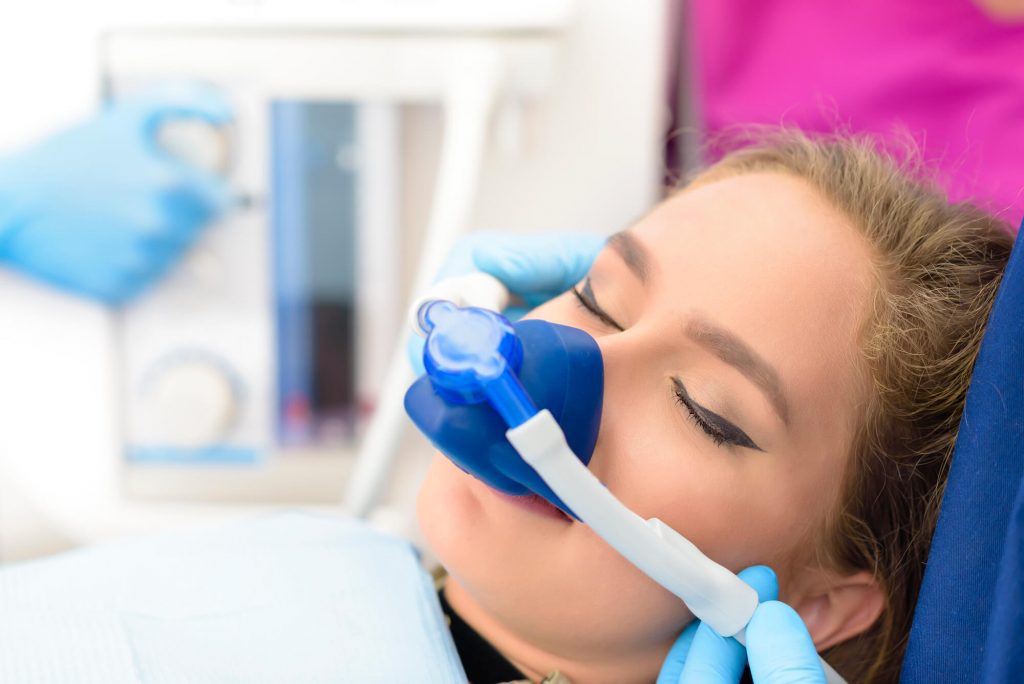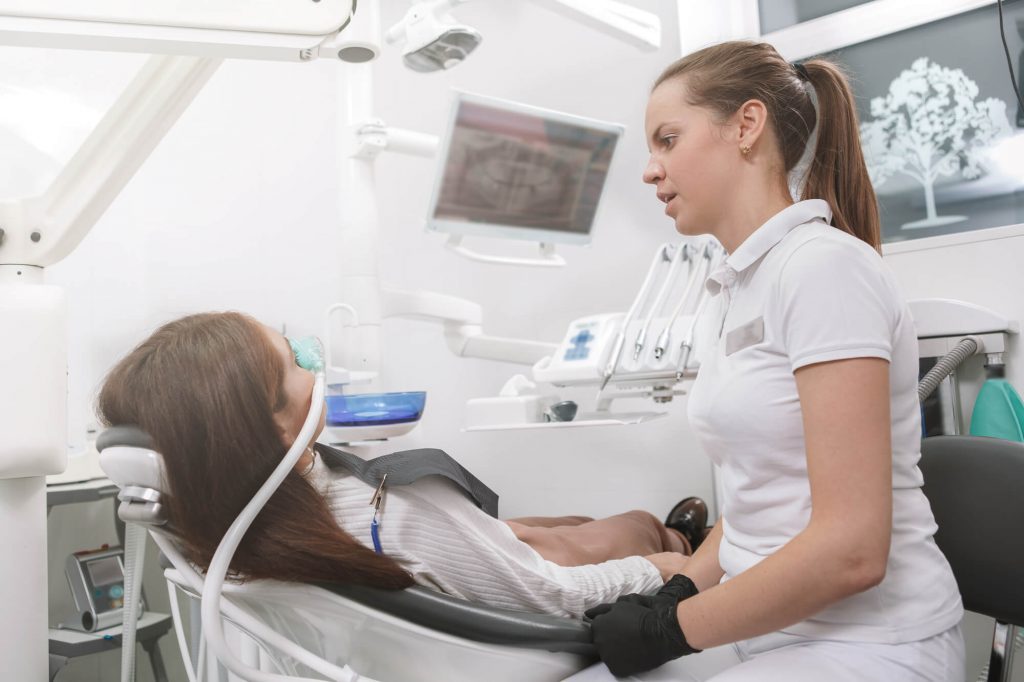How do you feel about seeing your dentist? Most people aren’t thrilled. In fact, they become overwhelmed with uncomfortable emotions. If you’ve been avoiding your dentist for the longest time because it makes you anxious, you can benefit from sedation dentistry in Wilson. Sedation dentistry is ideal for people who are afraid to visit the dentist to the point where they cancel appointments, even if it means risking their oral health. Dental sedation can help keep you calm and relaxed while receiving dental work ranging from simple to complex procedures. Don’t let dental phobia compromise your dental health.

Is Sedation Dentistry Right for Me?
What Is Sedation Dentistry?
Sedation dentistry uses medications to help nervous and anxious patients relax during a dental procedure. Some people call it “sleep dentistry”. However, the term is rarely used since most patients are conscious during the procedure except under general anesthesia.
What Are the Different Levels of Sedation?
There are various levels of sedation. Your dentist will assess you to determine what level you should be in. Minimal sedation is when you are awake but are completely relaxed. In moderate sedation or conscious sedation, you are awake, but you’ll only have vague memories of the procedure.
Slurring may also occur. In deep sedation, you are barely conscious but can still be roused. However, if you are under general anesthesia, you will be completely unconscious the entire time.
Am I a Candidate for Dental Sedation?
You must be in good mental and physical condition to safely undergo dental sedation. Your dentist can ask for clearance from your medical doctor, especially if you have a family history of diabetes, hypertension, and respiratory and cardiac disease. Part of the process is to obtain your medical history and a physical assessment before sedation.
Sedation dentistry is suitable for people who have:
- An intense fear of the dentist that results in panic and anxiety attacks
- A fear of needles
- Who are about to undergo a lengthy procedure
- Those requiring multiple dental works
- Who have a low pain threshold
- A hypersensitive gag reflex
- Very sensitive teeth and gums
What Are the Different Types of Sedation?
Sedation dentistry can be given orally, intravenously, or through inhalation.
Oral Sedation: In oral sedation, you are given medications either in liquid form or through pills. These medications are taken by mouth. Most dentists prefer to combine oral sedation with inhalation sedation. You will be awake when taking oral sedatives, but you won’t be nervous.
Inhalation Sedation: The most common form of sedation dentistry is inhalation sedation or inhalation analgesia. You’re given a mask where the nitrous oxide is administered. Inhaling nitrous oxide will not make you fall asleep, but it does an amazing job keeping your anxiety level low.
Intravenous Sedation: In this form of sedation, the medication is administered by directly injecting it into your vein. Although you are awake during the procedure, you are completely relaxed.
Patients under general anesthesia may be given medications either intravenously or through inhalation. In general anesthesia, you are completely unconscious.
Is Sedation Dentistry Safe?
Getting anesthesia comes with risks. However, sedation dentistry is generally safe as long as licensed dentists administer it. People who have obstructive sleep apnea or are obese should discuss sedation dentistry with their medical doctor first since they are more prone to develop complications.
There are a few things you need to take note of before receiving dental sedation:
- Your dentist should obtain your medical history and determine if you are a good candidate for dental sedation. It’s also important that your dentist asks you about your current medications. Some medications may interfere with the drugs used in sedation dentistry.
- Don’t hesitate to ask your dentist about the suitable dose for your health status and age. You can check or ask if the dose is recommended by the FDA.
- You can also check your dentist’s background and learn about their training and experience with sedation dentistry.
- Ask your dentist to elaborate on the risks associated with dental sedation. If there are details that you find unclear, don’t be afraid to ask for a more elaborate explanation.
- Your vital signs are closely monitored during the procedure. Your dentist should have all the equipment needed to reverse the effects of sedation whenever necessary.
How Long Will the Sedation Wear Last?
How long the sedative stays in your body will depend on the dosage you got, how fast your body recovers, and the treatment length. Since the medication makes you feel drowsy, you should have a friend or family drive you from the dental office to your home.

Do You Need Sedation Dentistry in Wilson?
Dental visits shouldn’t be a test of courage. If you are afraid, let your dentist know about it. Sedation dentistry is an excellent option for people who can’t bring themselves to go through dental procedures because of fear. At Tyron Family Dentistry, your oral health is our priority. We offer various dental treatments personalized to address your dental concerns. Contact us today for an appointment.

